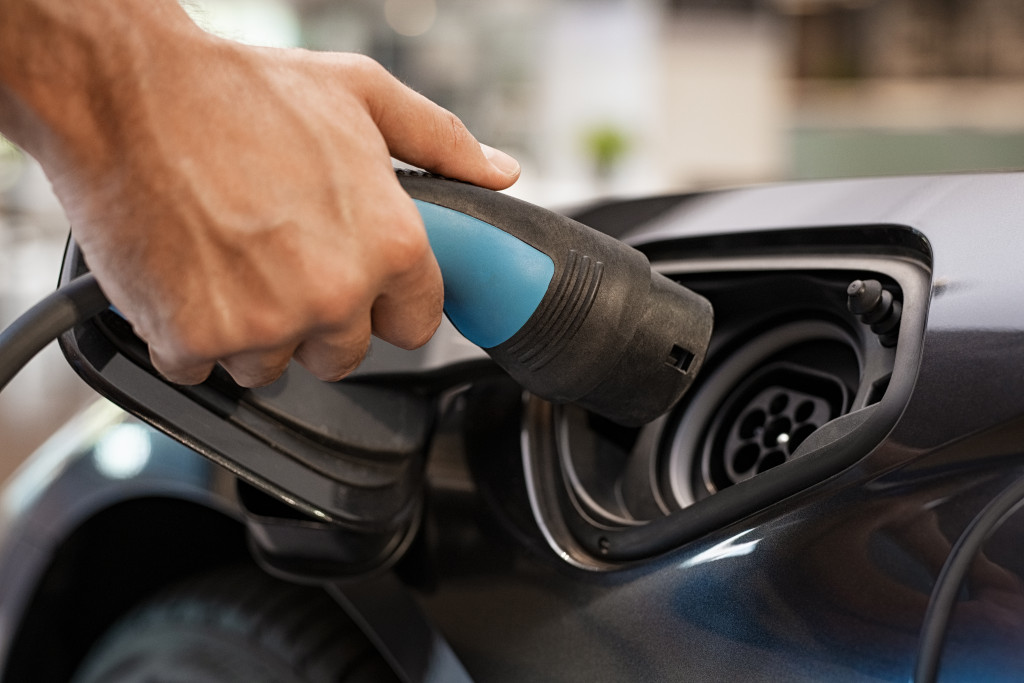- The EV battery production process is intricate, relying on sustainable sourcing of critical materials like lithium, cobalt, nickel, and graphite.
- Thoroughly understanding and optimizing production stages can enhance battery efficiency and reduce costs.
- Custom shipping cases ensure safe transport and storage, protecting the high-value, delicate batteries.
- Careful planning and execution can create an effective system for producing high-performance EV batteries that meet safety standards.
The rising wave of Electric Vehicles (EVs) has significantly transformed the automobile industry over the past few years. This change is reflected in the increasing adoption rates among consumers; according to the International Energy Agency (IEA), there were 5 million electric cars on the road last year, surging to over 7.2 million today, signifying a 40% year-over-year increase. The steep upward trend indicates an overwhelming acceptance and growing popularity of EVs among consumers, fueled by environmental consciousness, technological advancements, and supportive government policies.
As a result, businesses around EVs are popping up, including EV battery production. The global market for electric vehicle batteries was estimated to be around $56.4 billion and is projected to grow exponentially in the coming years. Although this presents excellent opportunities for businesses, it also brings its own set of challenges that need to be managed effectively.
The process of EV battery production is complex and challenging. Still, you can find ways to make it more efficient and cost-effective. It’s essential to map out the entire process, understand each step, and identify areas that require attention, including these:
Sourcing Raw Materials

Sourcing raw materials is the first and perhaps the most critical step in EV battery production. Raw materials’ quality, availability, and cost play a pivotal role in determining EV batteries’ efficiency, performance, and production cost. Sustainable sourcing practices also impact the environment and local communities where these materials are mined.
Lithium
Lithium is a core component of most EV batteries due to its excellent energy density and long cycle life. Lithium’s energy storage efficiency makes EVs a viable replacement for conventional vehicles. However, lithium resources are geographically concentrated, and securing steady supplies at affordable prices is a significant challenge.
Cobalt
Cobalt, another crucial ingredient, enhances the stability and safety of batteries. Much of the world’s cobalt is sourced from the Democratic Republic of Congo, which has raised ethical sourcing concerns due to poor working conditions and child labor prevalent in its mining industry. EV battery manufacturers must ensure ethical sourcing of cobalt to avoid reputational risks.
Nickel
Nickel provides high energy density to the batteries, enabling EVs to travel longer distances on a single charge. However, sourcing nickel can be environmentally damaging, as its extraction and refining processes are highly polluting. Consequently, manufacturers need to strike a balance between performance, cost, and environmental impact.
Graphite
Another essential raw material for EV battery production is graphite. It is an excellent conductor of electricity and provides a lightweight structure to the batteries, making them more portable. The most common graphite sources are flake, amorphous, and synthetic graphite. Like cobalt, ethical sourcing of graphite is also critically important as it is often sourced from areas with poor labor conditions.
Establishing Production Process
The production process forms the crux of EV battery manufacturing. In this phase, raw materials are transformed into high-performance batteries ready for installation in electric vehicles. An efficient, streamlined process is crucial to ensure the consistent quality and performance of the batteries. It also plays a significant role in determining the cost-effectiveness of battery production, which can affect the overall affordability of electric vehicles on the market.
The production process for EV batteries involves several steps:
- Mixing: The first step in the production process is mixing the cathode and anode materials. This usually involves blending active materials such as lithium, cobalt, nickel, and graphite with conductive additives and binding agents to ensure uniform conductivity and adhesion.
- Coating: The mixed materials are then coated onto a metal foil to create the cathode and anode. This step requires precision to ensure the coating thickness is consistent across the entire foil.
- Drying: The coated foils are then dried to remove moisture. This step is critical as residual water can degrade the battery’s performance.
- Slitting: The dried-coated foils are then cut into strips, ensuring they are the correct size for the cell assembly.
- Cell Assembly: The process involves stacking or winding the anode, cathode, and separator layers. This is one of the most critical steps in the manufacturing process, where precision is paramount.
- Formation: The assembled cells are then charged and discharged several times in a process known as formation. This step activates the materials and verifies that the cells can store and release energy effectively.
- Testing & Inspection: Every cell undergoes rigorous testing and inspection to ensure they meet the necessary safety and performance standards. Any defective cells are identified and removed from the production line.
By understanding and optimizing each step of the production process, manufacturers can enhance battery efficiency, reduce production costs, and ultimately contribute to the growth and accessibility of the electric vehicle market.
Protective Packaging

Proper packaging plays a crucial role in the EV battery production process. Given the delicate nature of batteries and their components, custom EV battery shipping cases are critical for safe and secure transportation. The enhanced protection offered by these cases guards against potential damage due to drops, vibrations, or harsh environmental conditions during shipping.
An EV battery is a high-value item with intricate designs and sensitive components that require optimal protection. Custom EV battery shipping cases are designed to offer that protection, fitting the exact dimensions of the batteries and providing a snug, secure space. These cases also incorporate shock-absorbing materials to mitigate impacts and foam inserts that cradle the batteries, minimizing movement during transit.
Moreover, these custom cases are not only valid for shipping but also for storing batteries. They ensure the batteries are kept in a clean, dry environment, free from dust and moisture that could degrade their performance over time.
Final Thoughts
The process of EV battery production can be complex and challenging, but with careful planning and execution, businesses can create an efficient and cost-effective system. Following the steps outlined above can help ensure the smooth and effective production of high-performance EV batteries that meet safety standards.









